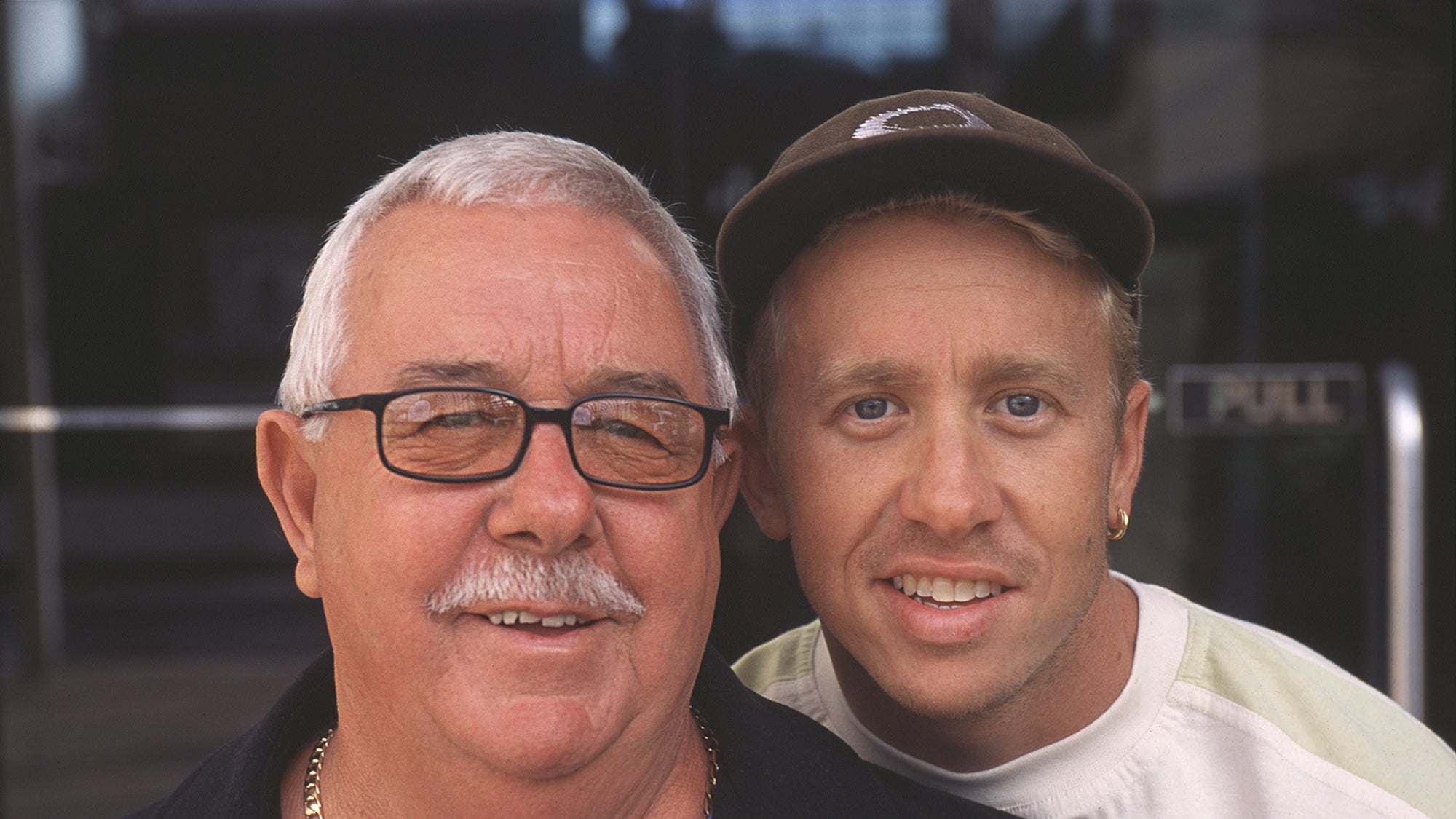Get to Know Triathlon's Original Coaching Legend

Photo: Timothy Carlson
At the first ITU World Championship in 1989, an 18-year-old named Miles Stewart burst onto the triathlon scene with a fourth-place finish. Two years later, he became Australia’s first triathlon world champion. He then went on to finish sixth at the first Olympic Triathlon in 2000 and second in the 2002 Commonwealth Games. In a 2014 interview, he said his proudest achievement was “being able to improve every year for 20 years.” The key to that steady improvement over two decades? His dad, Col, who just may be the sport’s original coaching legend.
While the elder Stewart never got to enjoy the limelight of becoming a world champion and Olympian, his coaching resume is as impressive as his son’s athletic one. He’s coached athletes to nine world titles and nine Olympic appearances. When people talk about the heyday of Australian triathlon in the 90s and early 2000s, Stewart was the one pulling most of the strings. His coaching career began by training speed skaters, swimmers, and runners before making the transition to triathlon when he started coaching his son in 1983. He served as head coach of the Australian National Team from 1997-2006 and was Australia’s first NCC Level-3 accredited triathlon coach.
Always ahead of his time, Stewart preached the importance of balance and core strength at a time when most tri coaches were running athletes into the ground during every workout.
In his book, I’m Here to Win, Chris McCormack describes Stewart as the anti-Brett Sutton. After spending time training under both coaches, “Macca” says Sutton was known for his “German-style” program—which was all about a strict plan and hard work. Stewart, on the other hand, seemed to have no structure at all. His plans for each athlete were in constant flux, based on what he thought an athlete needed on a given day. Instead of focusing on piling on as much volume as possible, Stewart focused on form and race-specific prep.
“He taught me a fundamental principle of being a professional athlete,” McCormack says. “You don’t get paid for doing the biggest training volumes, or the fastest sessions on a Tuesday afternoon at the track. As a professional, your job is to win races and be ready to execute when it matters. That was what was at the heart of every training session.”
As a result of his unique approach, Stewart’s athletes—McCormack included—have had remarkable longevity. He coached Kiyomi Niwata, Japan’s most successful ITU athlete, throughout her nearly three-decades-long career. He was also one of the first triathlon coaches to introduce a squad-based program for his athletes—something that has become commonplace and almost mandatory for the most successful triathletes today.
“Of course he knew all there was to know about training, but what really set Col apart was his commitment to creating a culture of success within his squad,” McCormack says. “He was the first to do that. He was very selective with who got invited to train with him in Gold Coast, and the environment he built made athletes feel accountability at every session and every race.”
Stewart continues to coach both age-group and elite athletes from his base in Gold Coast today at the age of 85.